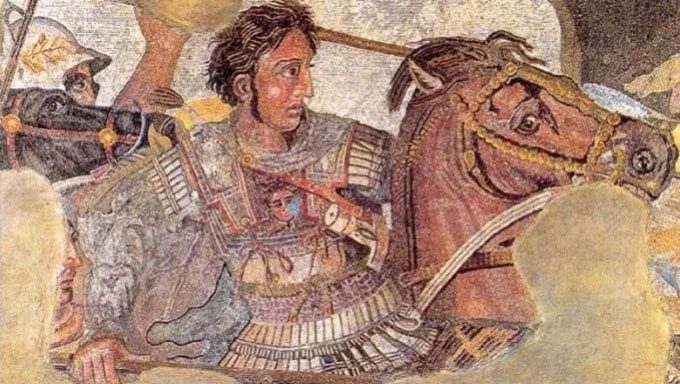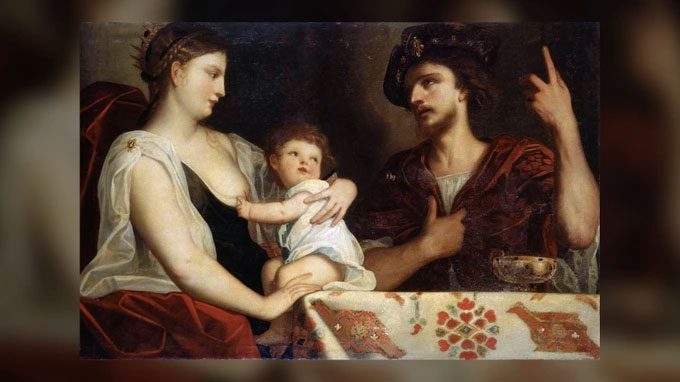Alexander the Great is one of the most renowned monarchs in world history. He died at the age of 32, leaving behind an incredibly vast empire, yet without a clear successor.
Alexander the Great ascended to the throne of Macedonia at the age of 20 and passed away just 12 years later after conquering one of the largest empires of the ancient world.

Alexander the Great. (Photo: Wikimedia, mosaic artwork in Pompeii, Italy).
During his reign, did he have any children, and what happened to his heirs during the power vacuum left after his death?
The short answer is “yes.” Alexander had at least one, and possibly two sons, both of whom were boys. One later became known as Alexander IV, the child of his wife Roxana.
The second son, nicknamed “Heracles of Macedon”, was born to his mistress Barsine.
According to Professor Ian Worthington, an ancient history scholar at Macquarie University in Australia, Roxana was the daughter of a chieftain in Bactria, a region in Central Asia. Alexander’s soldiers captured her while they were encamped in that area, and she became his wife around 327 BC.
However, Alexander did not live to see his son. When he died in Babylon in 323 BC, Roxana was still pregnant with their child.
The second son, Heracles of Macedon, was born to Barsine, a Persian noblewoman, around 327 BC, making him four years older than Alexander IV.
Some scholars today question whether Alexander was indeed the biological father of this illegitimate child, as he never officially acknowledged the boy as his son. However, most scholars agree that the boy was his offspring.
But why did his two sons not inherit the throne?

Roxana holding Alexander IV, alongside Greek general Eumenes – painting by Italian artist Padovanino. (Photo: Wikimedia).
After Alexander the Great died from a mysterious illness at the age of 32, there was no official heir to govern his powerful and vast empire, which stretched from the Balkans to what is now Pakistan.
At that time, Roxana, his wife, was pregnant with Alexander IV, and it was still unknown whether the child would be a boy or a girl.
Heracles of Macedon was not a legitimate child, making it difficult for him to ascend to the throne. Professor Worthington states that the boy was never considered a rival for the crown because he was born out of wedlock.
Additionally, both Roxana and Barsine were of Asian descent, which some of Alexander’s generals and soldiers did not favor.
According to ancient historian Quintus Curtius, both of Alexander’s sons were proposed as heirs in a meeting of generals and nobles, but many opposed them due to their mothers’ Asian heritage.
Alexander’s half-brother Arrhidaeus became king, and Alexander IV was designated as co-ruler.
However, neither of these “kings” had the capability to truly govern the country, as noted by Professor Carol King at Memorial University of Newfoundland, Canada.
Arrhidaeus had mental health issues, while Alexander IV was just an infant. As a result, “both became pawns in the struggle for succession among Alexander’s powerful generals, who fought against each other for control of the empire; and both Arrhidaeus and Alexander’s children were ultimately murdered.”
Alexander the Great’s mother, Olympias, wielded significant power in the royal succession struggle. In 317 BC, she agreed to become the guardian of Alexander IV and, with the help of an army under General Polyperchon, she had Arrhidaeus captured and executed.
However, an army led by General Cassander attacked, capturing Olympias along with Alexander IV in 316 BC and executed her.
Alexander IV and Roxana were subsequently imprisoned by General Cassander, who effectively eliminated rivals to control Macedonia.
Fearing that Alexander IV would pose a threat to his rule once he reached adulthood, Cassander had both Alexander IV and Roxana executed around 309 BC.
Heracles of Macedon fared no better. General Polyperchon imprisoned this illegitimate son of Alexander and, after reaching an agreement with Cassander, quickly executed the boy shortly after Alexander IV’s death.


















































